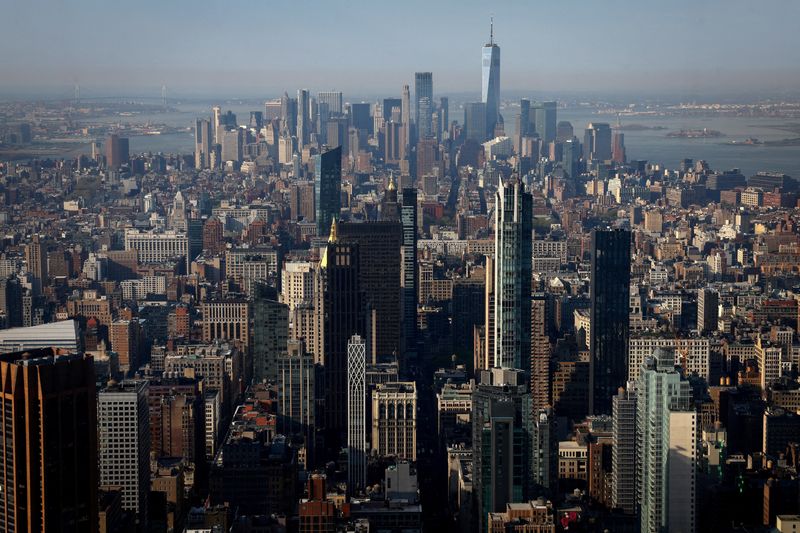
©Reuters. FILE PHOTO: The Manhattan skyline is pictured from the Summit at One Vanderbilt Observatory in Manhattan in New York City, U.S., April 14, 2023. REUTERS/Mike Segar/File Photo
By David Milliken
LONDON (Reuters) – Growing unhappiness among young people has caused the United States and some large Western European countries to fall in the global well-being index, while Nordic countries maintain their top positions.
The annual World Happiness Report, launched in 2012 to support the United Nations’ sustainable development goals, is based on data from US market research firm Gallup, analyzed by a global team now led by the University of Oxford.
People in 143 countries and territories are asked to rate their lives on a scale of zero to 10, with 10 being their best possible life. To create a ranking, the average of the results of the last three years is calculated.
Finland remained in first place – with an average score of 7.7 – followed closely by Denmark, Iceland and Sweden, while Afghanistan and Lebanon occupied the bottom two places, with scores of 1.7 and 2.7 respectively.
In general terms, rankings are loosely correlated with the prosperity of countries, but other factors such as life expectancy, social ties, personal freedom and corruption also appear to influence individuals’ ratings.
The United States dropped out of the top 20 for the first time, falling to 23rd place from 15th last year, due to a sharp decline in the sense of well-being of Americans under 30, the report shows.
While a global ranking of the happiness of people aged 60 and older would place the United States 10th, ratings of the lives of those under 30 alone place the United States 62nd.
The findings contrast with much previous research on well-being, which found happiness highest in childhood and early adolescence, before falling to its lowest point in middle age, then increasing around retirement.
“Young people, especially in North America, are going through a midlife crisis today,” said Jan-Emmanuel De Neve, an economics professor at the University of Oxford and one of the report’s editors.
Millennials and younger age groups in North America were significantly more likely than older age groups to report loneliness.
But De Neve believes a number of factors could reduce young people’s happiness, including greater polarization on social issues, the negative aspects of social media and economic inequality that has made it harder for young people to afford their own homes than in the past. . .
Although the phenomenon is most evident in the United States, the age gap in well-being is also large in Canada and Japan, and to a decreasing extent in France, Germany and Great Britain, all countries that lost ground in this year’s rankings.
In contrast, many of the countries that have seen the greatest improvements in well-being are the former communist countries of Central and Eastern Europe.
There, unlike richer countries, young people report a significantly better quality of life than older people, often on par or better than in Western Europe.
“Slovenia, Czech Republic and Lithuania are entering the top 20 and this is entirely driven by their youth,” De Neve said.